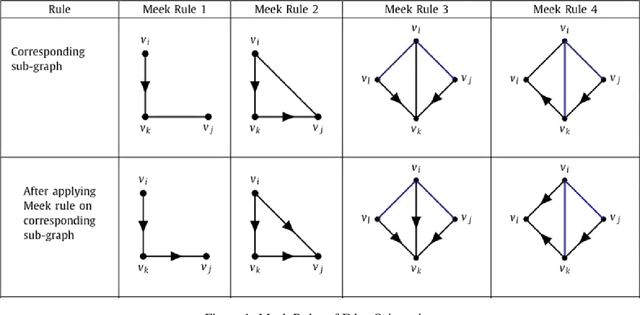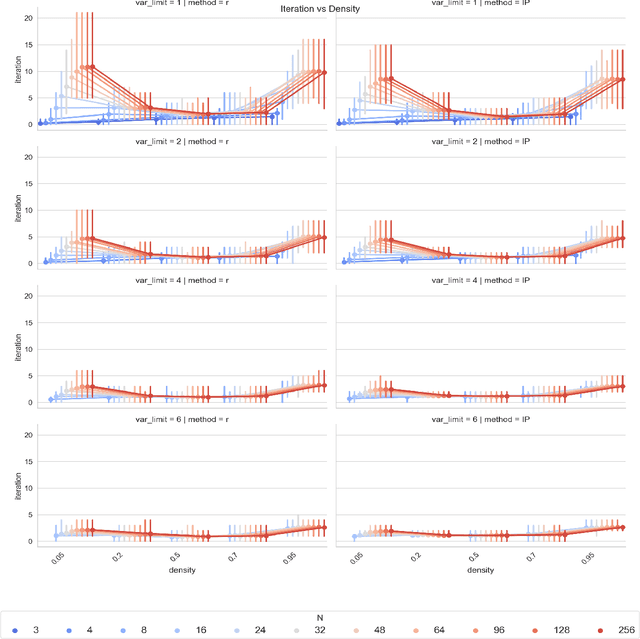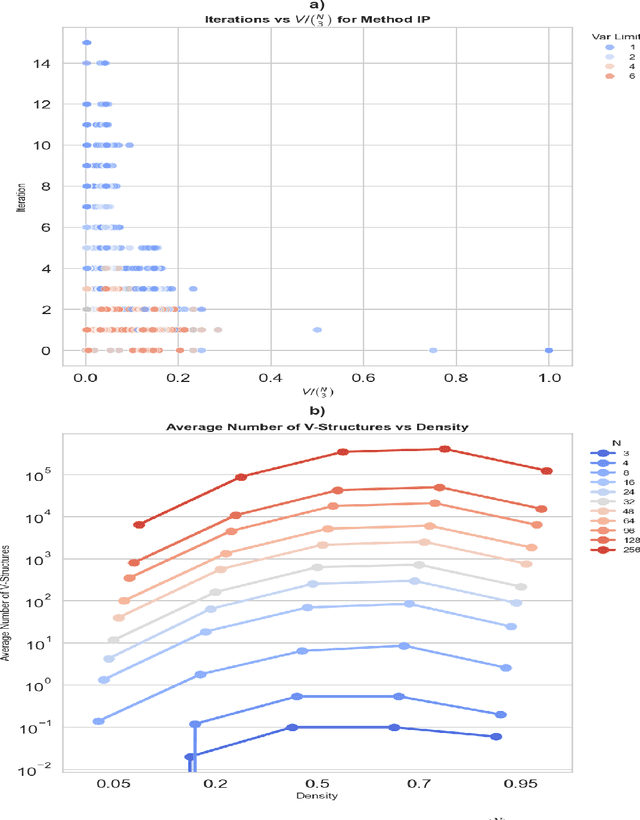From Observation to Orientation: an Adaptive Integer Programming Approach to Intervention Design
Paper and Code
Apr 10, 2025



Using both observational and experimental data, a causal discovery process can identify the causal relationships between variables. A unique adaptive intervention design paradigm is presented in this work, where causal directed acyclic graphs (DAGs) are for effectively recovered with practical budgetary considerations. In order to choose treatments that optimize information gain under these considerations, an iterative integer programming (IP) approach is proposed, which drastically reduces the number of experiments required. Simulations over a broad range of graph sizes and edge densities are used to assess the effectiveness of the suggested approach. Results show that the proposed adaptive IP approach achieves full causal graph recovery with fewer intervention iterations and variable manipulations than random intervention baselines, and it is also flexible enough to accommodate a variety of practical constraints.
 Add to Chrome
Add to Chrome Add to Firefox
Add to Firefox Add to Edge
Add to Edge